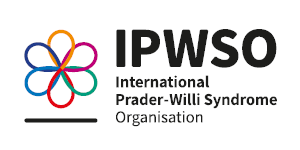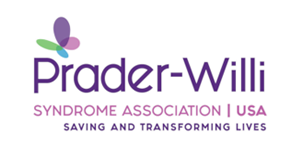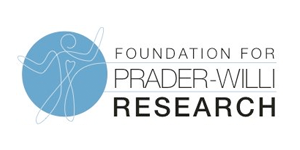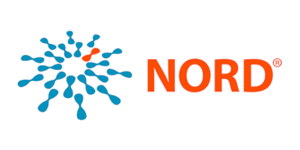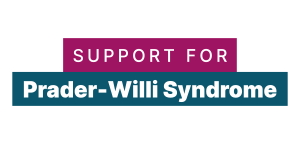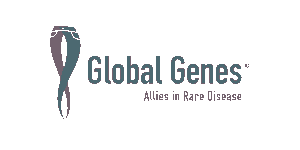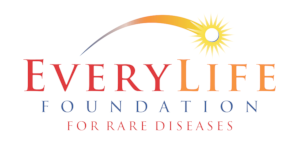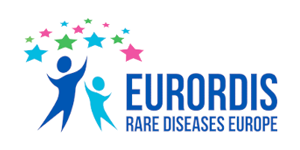For many individuals affected by PWS, the reduction of “some of the most difficult aspects of the syndrome, such as the insatiable appetite and obesity, would represent a significant improvement in quality of life and the ability to live independently.”
Foundation for Prader-Willi Research
About Prader-Willi Syndrome
1:15,000 births
Occurrence of Prader-Willi syndrome (PWS)
350,000-400,000 people worldwide 1
Estimated prevalence of Prader-Willi syndrome (PWS)
Age 1 year 2
Nearly all patients are diagnosed by this age
Between 21 and 29 years 3,4
The average lifespan of people with PWS
Chromosome 15 defect
Deletion or loss of expression of gene cluster in Prader-Willi critical region
All people affected
Males and females of all ethnic backgrounds
Life-threatening childhood obesity
Most common genetic cause
Among the characteristics of PWS in infants are hypotonia (weak muscles), low muscle mass, weak suck at birth. As the child develops short stature and small hands and feet, behavioral problems and hyperphagia (insatiable hunger) leading to early onset childhood obesity occur, as well as incomplete sexual development due to growth hormone and other hormone deficiencies and intellectual disability. There is elevated mortality in PWS at all ages.
Diagnosis
Diagnosis of PWS is confirmed by genetic testing. Newborns with PWS must often be treated for extended periods in the hospital before going home and may require tube feeding and other supportive care. In developed countries, where genetic testing is more readily available, patients are often diagnosed within the first month of life.
Living with PWS
People with PWS can take about twice as long to reach developmental milestones, (sitting, crawling, walking, speaking) as their siblings or other children their age. This is due to hypotonia and low muscle mass.
Starting at age two, most people with PWS begin to gain excess body fat even without an increase in caloric intake and are prone to excess body fat accumulation throughout life.
Hyperphagia
Nearly all people living with PWS will reach a stage characterized by hyperphagia (insatiable hunger). For some, this occurs as early as age four, and on average about age eight and then continues into adulthood. Hyperphagia occurs because of failure of the normal appetite regulatory mechanisms in the hypothalamus, which can lead to increased appetite or food consumption, reduced satiety and a range of disruptive food related behaviors, including aggressive food seeking.
At this stage children and adults are constantly seeking and thinking about food and may:
- Become angry or frustrated if denied food or asked to stop talking about food.
- Often consume any accessible food including frozen food, pet food, and even non-food items.
- Can continue to eat until stomach ruptures.
- Steal food or money to buy food and hoard and hide food to eat later.
Expanded Access Policy
At Soleno, we are fully committed to developing investigational products for the treatment of rare genetic diseases. Our potential products are investigational, which means that they have not been deemed to be safe and effective by regulatory health authorities such as the U.S. Food and Drug Administration (FDA).
At this time, Soleno is not able to make our investigational products available outside of our clinical trials, including under an expanded access program or the “Right to Try” process. We encourage families and caregivers interested in gaining access to our investigational products to consult their physician regarding the possibility of participating in clinical trials.
A listing of our and other clinical trials can be found on publicly accessible databases such as ClinicalTrials.gov. For additional questions, you may have your physician reach out to us at info@soleno.life
This policy is issued in compliance with Chapter V, Section 561A of the U.S. Federal Food, Drug, and Cosmetic Act.
This is an exciting time for medical and scientific innovation in PWS, and we are proud to be working toward improving the lives of people affected by this disorder.
Additional Resources for Patients and Families
Soleno supports the efforts of patient advocacy organizations to raise awareness of PWS.
We encourage you to learn more about the support, information, and resources available to people with PWS and caregivers:
Prader-Willi Syndrome Resources
International Prader-Willi Syndrome Organization – https://ipwso.org
Prader-Willi Syndrome Association USA – https://www.pwsausa.org
Foundation for Prader-Willi Research – https://www.fpwr.org
NIH Genetics – Reference Page on Prader-Willi syndrome
Information about Prader-Willi Syndrome
Rare Disease Organizations
Global Genes – www.globalgenes.org
NORD (National Organization for Rare Disorders) – www.rarediseases.org
EveryLife Foundation for Rare Diseases – www.everylifefoundation.org
EURORDIS-Rare Diseases Europe – www.eurordis.org
Stay in Touch
We continue to learn and evolve based on our engagement with you.
If you’d like to receive updates from us, please join our mailing list.
References
1. Butler MG, Hanchett JM, Thompson T. Clinical findings and natural history of Prader-Willi syndrome. In: Management of Prader-willi Syndrome, Butler MG, Lee PDK, Whitman BY (Eds), Springer, New York 2006.
2. Bar C, Diene G, Molinas C, Bieth E, Casper C, Tauber M. Early diagnosis and care is achieved but should be improved in infants with Prader-Willi syndrome. Orphanet Journal of Rare Diseases 2017; 12:118.
3. Bellis SA, Kuhn I, Adams S, Mullarkey L, Holland A. The consequences of hyperphagia in people with Prader-Willi syndrome: a systematic review of studies of morbidity and mortality. Eur J Med Genet 2022; 65:104379.
4. Butler MG, Manzardo AM, Heinemann J, Loker C, Loker J. Causes of death in Prader-Willi syndrome: Prader-Willi Syndrome Association (USA) 40-year mortality survey. Genet Med 2017; 19(6):635-642.

